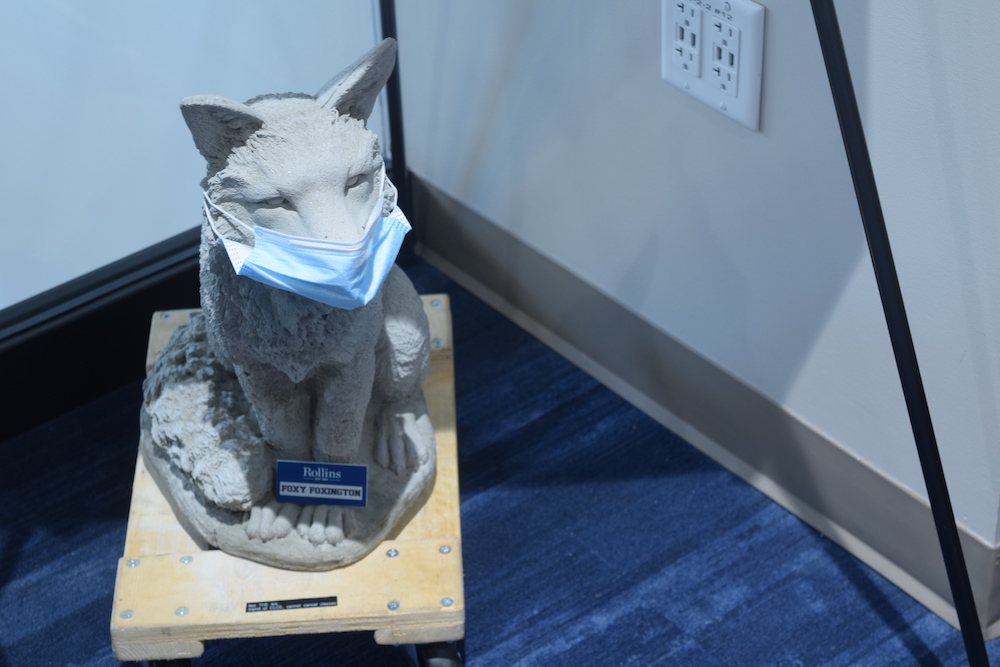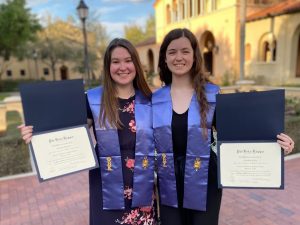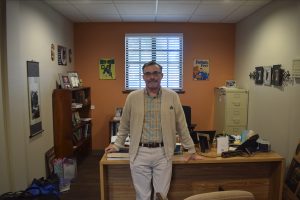
Rollins’ updated COVID-19 policy has shifted from required to recommended masking in most indoor spaces. Previously, masks were optional in residential spaces but required in academic and administrative settings. Effective Feb. 28, the only place where masks continue to be required is the Wellness Center.
“There are multiple prongs that evaluate the masking policy in accordance with local, state and CDC guidance,” said Denise Snyder, associate director of the Wellness Center. “In addition, we review campus positivity, effluent testing (residential waste water testing), and our surrounding community. I would like to reiterate that it is not a NO masking policy—it has shifted from required to recommended and allows the individual to mask if they have personal reasons to do so.”
Provost Dr. Susan Singer said, “Our decision to shift to recommended masking is informed by our low campus positivity, 1.3 percent [as of March 2], and new CDC guidance. As the COVID-19 positivity rates and stress on the Orange County healthcare system decline, the CDC has shifted to recommending masks in indoor spaces, including classrooms.”
“As we indicated when we modified the mask policy when campus COVID-19 positivity rates reached five percent, we were looking at making masks recommended, not required, in academic and administrative buildings when we reached three percent. We are now well below a three percent positivity rate and are making this shift,” Singer said.
At the time of publication, Rollins’s positivity rate is 0.89 percent.
Regardless of whether community members choose to wear a mask, Snyder said that members should stay home and seek medical care if they are ill to reduce the spread of illness. The same common preventative practices apply, including washing your hands, sneezing into your elbow (not your hands), and testing if you have symptoms.
“Students that are at high risk for respiratory illnesses should consider wearing their mask around others and avoiding large crowds,” Snyder said.
The change has been met with mixed emotions from students and staff alike.
“I am traveling back home to Belgium for spring break. I don’t want to mess up my travel plans due to a positive COVID test, so I am opting to wear a mask,” said Helene Gilis (‘24). “Wearing a mask can be tricky for people like me who wear glasses, but I want to keep my family and friends safe and healthy.”
“In one of my classes, my professor is immuno-compromised and cares for their elderly parents,” Brendan Manning (‘23) said. “They asked if we would keep our masks on, and everyone did. It was nice to see people put aside their preferences and show kindness.”
Singer emphasized that “faculty may request but not require masks. It is possible that your faculty member is in a high-risk group or is caring for someone at risk. If your faculty member requests that you wear a mask in their office or classroom, please be a caring and thoughtful community member.”
“The COVID-19 metrics team that continues to meet daily continues to evaluate our campus positivity, the surrounding community, and any upcoming concerns related to any COVID-19 variants,” Snyder said.
“I have great confidence in the commitment our campus has to keeping everyone safe. For now, I am optimistic about maintaining a low positivity rate,” Singer said.











Comments are closed.